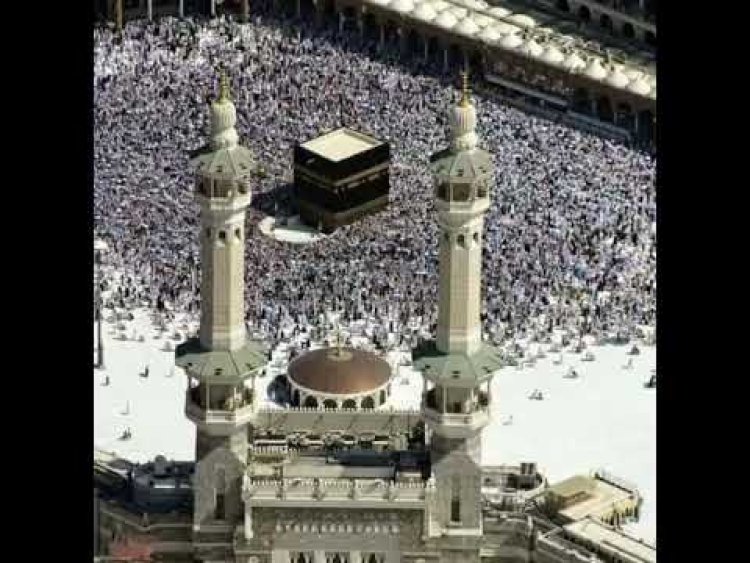Sunnah of Travel: What the Prophet (PBUH) Taught Us About Journeys
Share this Post to earn Money ( Upto ₹100 per 1000 Views )

Traveling is an essential part of human life. Whether it’s for business, leisure, spiritual purposes like Hajj or Umrah, or simply visiting family, travel plays a pivotal role in connecting people and cultures. In Islam, even this mundane act of traveling has been given a spiritual dimension, taught and exemplified by none other than Prophet Muhammad (peace be upon him). His guidance on how to travel, what to do before, during, and after the journey, and how to maintain a strong connection with Allah throughout is a timeless treasure for Muslims. For those seeking to travel for pilgrimage, especially, it is important to follow the Sunnah closely. If you're planning a spiritual journey, explore Cheap Umrah Packages that align with both your budget and Sunnah principles.
Let us explore the Sunnah of travel as taught by our beloved Prophet Muhammad (PBUH).
1. Intention (Niyyah) Before Travel
The Prophet (PBUH) emphasized the importance of intention in every act. Before embarking on any journey, one should purify their intention. If the journey is for business, leisure, or spiritual growth, it must be done with the consciousness of pleasing Allah and not for show, competition, or unlawful gain.
The Messenger of Allah (PBUH) said: “Actions are judged by intentions, and everyone will be recompensed according to what he intended.” (Bukhari & Muslim)
2. Consultation and Planning
Planning a journey is not just logistical; it is spiritual. The Prophet (PBUH) would consult his companions before traveling and make necessary preparations. He encouraged people to seek advice, prepare well, and ensure the safety of those left behind.
He taught us that before setting out, a traveler should ensure that all their responsibilities are taken care of—financial matters, family needs, and social obligations.
3. Offering Two Rak’ahs Before Departure
Before leaving for travel, the Prophet (PBUH) would offer two rak’ahs of prayer. This was a way of seeking Allah’s protection and blessings for the journey.
According to reports, many companions would offer this Sunnah prayer before traveling as a means of spiritual readiness and safeguarding.
4. Dua for Travel
The Prophet (PBUH) recited a specific supplication when mounting his ride:
"Subhanalladhi sakh-khara lana hadha wa ma kunna lahu muqrineen, wa inna ila Rabbina lamunqaliboon"
(“Glory is to Him who has subjected this [ride] to us, and we could never have accomplished it [by ourselves]. And indeed, to our Lord we will surely return.”)
This powerful dua reminds the traveler of their dependence on Allah, the temporary nature of the journey, and the ultimate journey toward the Hereafter.
5. Leaving on a Thursday
While not obligatory, it is reported that the Prophet (PBUH) preferred to begin journeys on Thursdays. Ibn Abbas reported that the Prophet (PBUH) would mostly travel on Thursdays.
It reflects how even the timing of travel was part of his thoughtful practice.
6. Saying Farewell and Seeking Duas
The Sunnah also includes saying goodbye to family and friends with affection and asking them for duas. The Prophet (PBUH) would make the following dua for those setting off:
“Astaudi’ullaha deenaka wa amanataka wa khawateema ‘amalik”
(“I entrust Allah with your religion, your trust, and your final deeds.”)
And those leaving would also request prayers for protection and success. This fosters love, brotherhood, and reliance on Allah.
7. Traveling in a Group and Appointing a Leader
The Prophet (PBUH) discouraged traveling alone. He recommended that travelers move in groups and appoint one as their leader to keep order and unity. Abu Sa’id al-Khudri narrated that the Prophet (PBUH) said:
"If three people set out on a journey, let them appoint one of them as their leader." (Abu Dawood)
This practice helps avoid disputes and enhances mutual respect during travel.
8. Light Packing and Trust in Allah
The Prophet (PBUH) emphasized moderation in packing. He encouraged taking only what is necessary and not burdening oneself. This is not only practical but also an act of trusting in Allah's provision along the way.
Travel teaches reliance on Allah, patience, and gratitude for the little things, and this can be achieved best when the traveler is not overburdened.
9. Being Good to Fellow Travelers
Kindness, generosity, and cooperation are essential traits of a Muslim traveler. The Prophet (PBUH) was known for his care and empathy toward his companions during journeys. He shared their burdens, cooked meals, helped with tasks, and ensured no one was left out.
His travels were full of mercy, patience, and humility—values that every Muslim should reflect during their journeys.
10. Observing Shortened Prayers (Qasr) and Concessions
Islam is a religion of ease, and during travel, the Prophet (PBUH) shortened the obligatory prayers (qasr) and combined some prayers to make the journey less burdensome. This concession is a divine blessing and should be followed without hesitation.
Travelers are allowed to shorten four-unit prayers to two (Dhuhr, Asr, and Isha) and even combine Dhuhr with Asr, and Maghrib with Isha under certain conditions.
11. Avoiding Unnecessary Complaints
The Prophet (PBUH) acknowledged that travel is a form of hardship. He said:
"Travel is a portion of torment: it prevents one of you from food, drink, and sleep. So when one of you has accomplished his need, let him hasten his return to his family.” (Bukhari)
Despite recognizing the difficulties, the Prophet (PBUH) advised patience and gratitude instead of unnecessary complaints. This is a reminder to keep a positive attitude and maintain dhikr (remembrance of Allah) during challenging parts of the journey.
12. Returning Home Quickly After Completing the Purpose
The Sunnah encourages not to delay returning home once the objective of travel is complete. This was because the Prophet (PBUH) valued family ties and preferred reuniting with loved ones promptly.
On his return, he would say "A’iboon, taa’iboon, ‘aabidoon, li rabbinaa haamidoon"
(“We return repentant, worshiping, and praising our Lord.”)
This dua reflects the essence of a believer’s journey—not just a return from a destination but a spiritual return to Allah.
13. Entering One’s Home Thoughtfully
Upon return, the Prophet (PBUH) would enter his home quietly and greet his family lovingly. He discouraged surprising people by returning at odd hours. This act shows respect for family and avoids unnecessary disturbance.
14. Spiritual Significance of Religious Travel
One of the most virtuous forms of travel is for Hajj or Umrah. The Prophet (PBUH) personally performed these and encouraged Muslims to make this journey with sincere hearts. He said:
"Umrah to Umrah is an expiation for what comes in between, and Hajj which is accepted by Allah gets no less a reward than Paradise." (Bukhari & Muslim)
If you are planning this noble journey from the UK, check out Umrah Packages London to find the best options that combine convenience and spirituality in accordance with the Sunnah.
15. Reflection and Gratitude
Travel opens one’s eyes to the vastness of Allah’s creation. The Prophet (PBUH) often reflected on the signs of Allah during travel—the mountains, deserts, and stars. These were moments of awe and worship for him, not just scenic beauty.
Travel is an opportunity to reflect on life, connect with Allah, and appreciate the countless blessings we often take for granted. When done in accordance with the Sunnah, even a simple journey becomes an act of worship.
Conclusion
The Sunnah of travel offers a beautiful blend of spiritual mindfulness, practical wisdom, and compassionate behavior. Whether you're setting out for Umrah, business, or a vacation, following the Prophet’s (PBUH) way ensures that your journey is safe, blessed, and full of barakah (blessings). From making sincere intention to returning home with gratitude, every step carries divine reward when done in accordance with his teachings.
Next time you pack your bags, take a moment to reflect on the prophetic guidance. Let your journey be more than just a physical movement—let it be a journey of the heart and soul as well.















